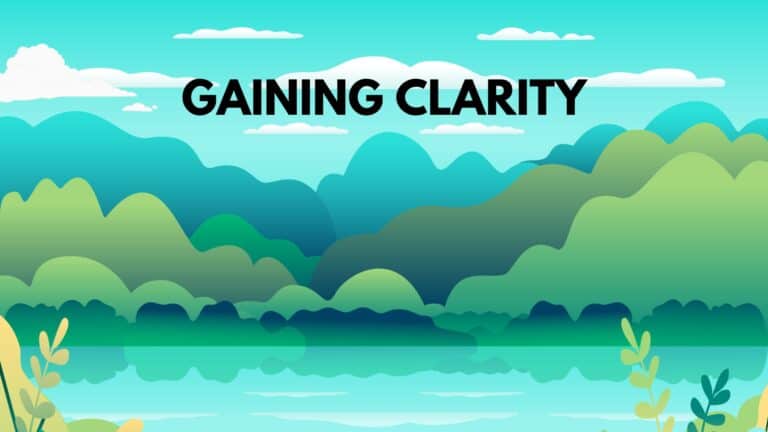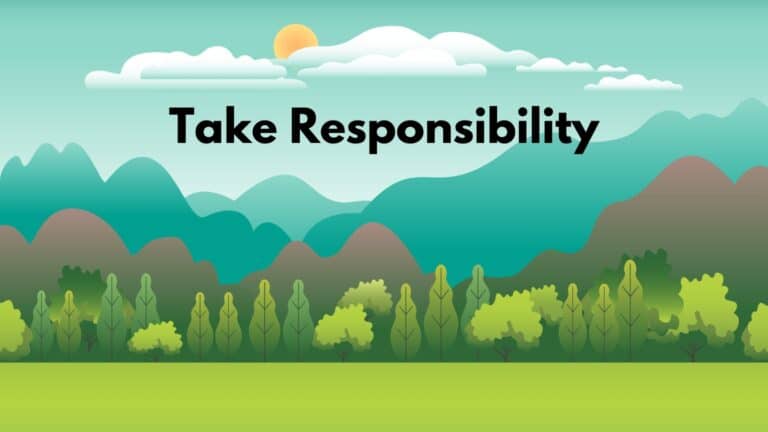Your Money Mindset: How to Understand and Improve It
What’s your money
Do you think of money as something that’s tight and hard to come by, or do you see it as a source of abundance and prosperity?
Because your money
Money has been a part of human living for over 10,000 years.
And with so much time to get used to the concept, it’s surprising so few of us are good at
But, the truth is the way our minds work gets in the way when it comes to money management.
Humans Aren’t Wired to Manage Money
Essentially, the human mind is set up to help us make choices that allow us to survive in the short term.
For millions of years, our brains slowly developed to choose immediate food sources over saving for the long term.
For example, given a choice between hunting for food today or spending the time to build a chicken coop, our ancestors choose to hunt.
And for millions of years, it worked.

Our ancestors who were able to find food in the short term were the ones who survived.
The result of this evolution is that our species evolved to be impulsive. We chase after the material items that we see immediately before us. This can mean that it is hard for us to save money.
We live in a YOLO culture that awards those with the newest toys and gadgets.
It constantly tells people they need to have bigger houses and nicer cars.
This results in many people spending every dollar they make and even more money beyond this amount, pushing them into debt.
We Spend Money and Get Into Financial Trouble
It can be easy for financial advisors, credit counselors, and other money professionals to tell people to spend less, save, and invest more.
But our minds aren’t wired this way.
Many of us are hardwired to gather or buy as many material assets as possible.
To be more specific, there are two kinds of people; ones who play it safe and ones who take risks.
Unfortunately, both of these money mindsets can lead to overspending.
Those who take risks will often pay more for the latest electronics or be more open to making a major purchase, such as a house or car, without considering all the options.
Like asking, “is the payoff worth the risk”.
Then, people with a play-it-safe money
However, balancing these two opposite mindsets can make a person “good” at
This is done by using the risk-averse part of a personality to set aside money for a future emergency (thereby reducing risk in the future).
You need to use a balance of these two mindsets to make smarter investment decisions with your personal finances.
Balancing Your Funds – Not Saving vs Not Spending Too Much
To be successful at
Start by honestly asking yourself if you’re a person who is more comfortable with risk or more comfortable with being safe.
People who tend to love risk spend more than they make, believing they’re just one big score or paycheck away from paying off their debts.
And they’re also more likely to take on higher-risk
If you love security, you’re more likely to save and have more money in your savings account. But you’re less likely to invest your money consistently to become truly wealthy over time.

Because so few people have the right combination of these money mindsets, it’s often a good idea to educate yourself as much as possible on proper money management.
If you don’t want to, hire a professional “fiduciary financial advisor”. And if you can’t afford professional management right now, start by reading and following the advice of other skilled money management professionals.
Start by asking yourself: How much do you need in the bank?
Or, ask yourself how much you’d need to invest to feel as if you didn’t need to amass any more money.
For some people, this is the amount of money they’d need to be comfortable quitting their job and never working again. Work becomes optional.
Use this amount as the goal for the total amount of money you want saved or invested. Once you’ve set this goal, start refining it some more.
Ask Yourself The Following Questions:
- Do you need additional money for goals such as paying for your children’s college education?
- How much of these savings need to be liquid? Specifically, could some of this amount be tied up in a house or vehicle?
- Will your goals change? This is common around major life events such as a marriage or the birth of a child.
- Have you factored in paying off debt into the amount of money you need to be comfortable?
Once you’ve answered questions like these, you can start developing an investment strategy that works well for you and your family’s financial future.
Are You Comfortable With Your Investments ?
Once you have a clear idea of your financial goals, it’s time to start developing your investment strategy.
Start by analyzing your tolerance and asking yourself these questions:
- How much money can you lose in a single day without panicking?
- What if those
investments were cut in half in one day? Would you still be okay and able to sleep at night? - How would you feel if your money didn’t grow as fast as your friends who are also making
investments ? - Is there a point when you think an investment makes so little money it isn’t worth it?
The answers to these questions are highly personal and will likely change over time.
Once you have a general idea of the risks you’ll take, you can create a stress-free investment strategy.
For example, a person comfortable with many risks might create a strategy that invests in high-yield stocks and few to no bonds.
This strategy could lead to a person doubling their money in a shorter amount of time, but it’s also possible to lose more or even everything just as fast.
This investment strategy is aggressive and doesn’t fit everybody’s financial goals.
Investing is personal. So, to truly be successful at
Our risk-taking
Change and Improve to Create a Healthy Money Mindset
So much of our money
Because the power of your thoughts and emotions when it comes to money can be beneficial or harmful.
A positive money
You must overcome limitations, past financial mistakes, and habits that might be holding you back.
To build the perfect portfolio for your life, you must be honest with yourself. This means identifying where roadblocks or gaps exist when
If you tend to take on too much risk, you’ll need to add more secure
If you’re risk-averse, you’ll need to find
Of course, to do this on your own, you’ll need to focus on the things holding you back from making these decisions.
Find Out The Following:
- What scares you about money?
- Is there something keeping you up at night?
- What causes stress in your life?
Once you’ve identified the causes of your hang-ups about money, you’ll know these are the things holding you back, and they’re what you need to work on overcoming.
Your brain might not be wired to manage money, but it can be re-wired, and you can do it.
The best way to do this is to educate yourself about money constantly. If you’re risk-averse, the more knowledge you collect, the less risky some truly good
And if you’re okay taking more financial risks, more education will help you make better-investing decisions.
The more you know about yourself and how you feel about the world, what you want, and what makes you happy, the easier it’ll be to figure out what kind of life you want to live.
Find out how you work, what you’re afraid of, and where those fears come from. Start there, and the rest of your financial life will fall into place.






